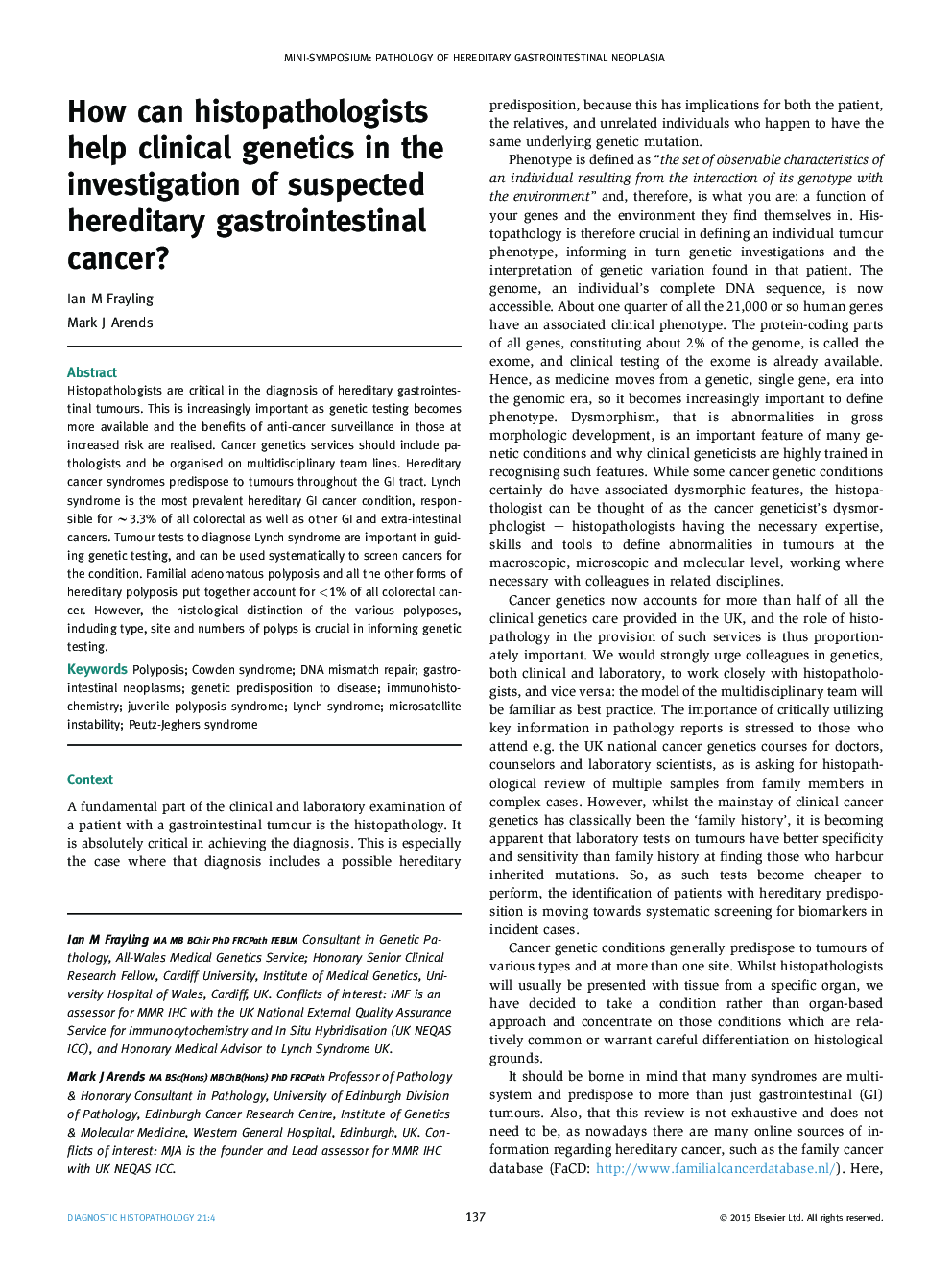| Article ID | Journal | Published Year | Pages | File Type |
|---|---|---|---|---|
| 6215226 | Diagnostic Histopathology | 2015 | 10 Pages |
Histopathologists are critical in the diagnosis of hereditary gastrointestinal tumours. This is increasingly important as genetic testing becomes more available and the benefits of anti-cancer surveillance in those at increased risk are realised. Cancer genetics services should include pathologists and be organised on multidisciplinary team lines. Hereditary cancer syndromes predispose to tumours throughout the GI tract. Lynch syndrome is the most prevalent hereditary GI cancer condition, responsible for â¼3.3% of all colorectal as well as other GI and extra-intestinal cancers. Tumour tests to diagnose Lynch syndrome are important in guiding genetic testing, and can be used systematically to screen cancers for the condition. Familial adenomatous polyposis and all the other forms of hereditary polyposis put together account for <1% of all colorectal cancer. However, the histological distinction of the various polyposes, including type, site and numbers of polyps is crucial in informing genetic testing.
